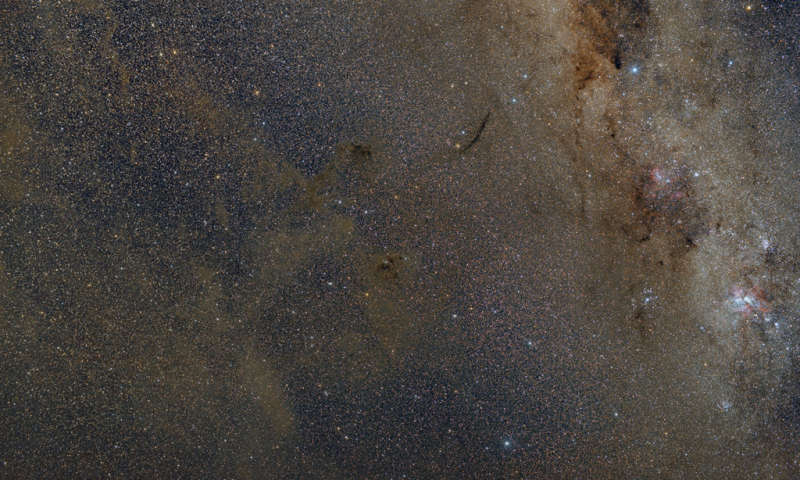
|
Credit & Copyright: Frank Sackenheim
Explanation:
South
pole star Sigma Octantis
(of the constellation Octans) is on the left of this starry expanse
spanning over 40 degrees across far southern skies.
You'll have to look hard
to find it,
though.
The southern hemisphere's faint counterpart to the north star Polaris,
Sigma Octantis is a little over one degree from the
South Celestial Pole.
Also known as Polaris Australis,
Sigma Octantis
is below 5th magnitude, some 25 times fainter than Polaris and
not easy to see with the unaided eye.
In fact,
it may be the faintest star depicted on a national flag.
The remarkable deep and wide-field view also covers faint,
dusty galactic cirrus clouds, bounded at the right
by the star clusters and nebulae along
the southern reaches of plane of our
Milky Way galaxy.
Near the upper right corner is yellowish Gamma Crucis, the top of the
Southern Cross.
Easy to pick out above and right of center is the long
Dark Doodad
nebula in the southern constellation Musca, the Fly.
|
January February March April May June July August September October November December |
| ||||||||||||||||||||||||||||||||||||||||||||||||
NASA Web Site Statements, Warnings, and Disclaimers
NASA Official: Jay Norris. Specific rights apply.
A service of: LHEA at NASA / GSFC
& Michigan Tech. U.
Based on Astronomy Picture
Of the Day
Publications with keywords: southern sky - south pole
Publications with words: southern sky - south pole
See also:
